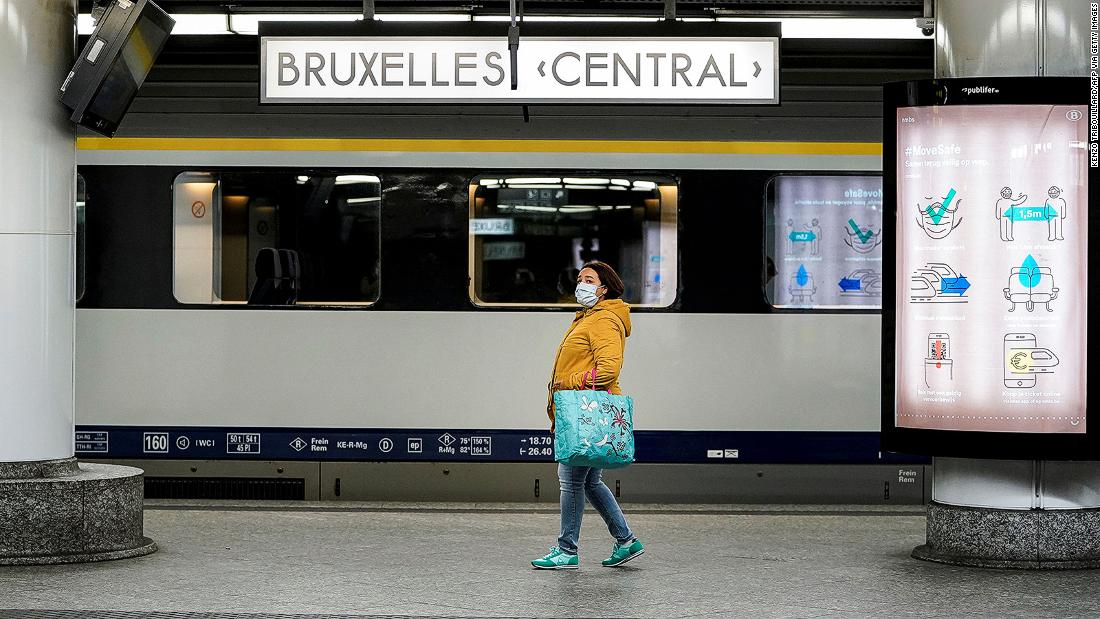Other announcements included a VAT cut, higher welfare payments and a tax-deductible €300 gift check which employers can give to their staff to use in restaurants or on trips to the theater or museums.
Belgium entered the third phase of its lockdown-easing measures on June 8, with almost all businesses operating again, including hotels, cafes and restaurants, albeit with social distancing measures in place.
Despite this relatively swift exit from lockdown, Belgium has one of Europe’s higher death rates per capita, with more than 9,600 deaths in a country with a population of 11.5 million.
The Belgian capital of Brussels and the major cities of Bruges, Ghent and Antwerp are all accessible by train, as are the forested hills of the Ardennes region.
It sounds like a feel-good innovation for a country easing out of lockdown — but the national rail company says the government neglected to consult them.
“We think it’s a good thing that our government wants to promote the use of public transport as a sustainable way of traveling,” SNCB spokesperson Dimitri Temmerman told CNN.
“However, the way in which this decision was taken Saturday without any consultation raises very serious questions. A free distribution of train passes to all Belgian residents raises the question of the sanitary safety of our travelers and staff. SNCB will in no way jeopardize that safety, wherefore she worked hard these recent months.”
Temmerman reinforced Dutordoir’s Twitter statement, saying “That was why we asked for immediate consultation and all necessary assistance to avoid any risk of overcrowding on our trains and platforms. At the same time, the logistics and financial aspects need to be clarified.”
Even after discounting children and other ineligible travelers, the proposal could potentially burden the country’s railway network with close to 100 million extra journeys in 2020.
Safe social distancing on public transport is one of the biggest challenges facing cities worldwide as they consider lockdown-easing measures.
The United Kingdom, meanwhile, which formally left the EU on January 31, has bucked the trend by controversially imposing a 14-day quarantine on all arrivals into the country, coming into force — like Belgium’s phase three measures — on June 8.
